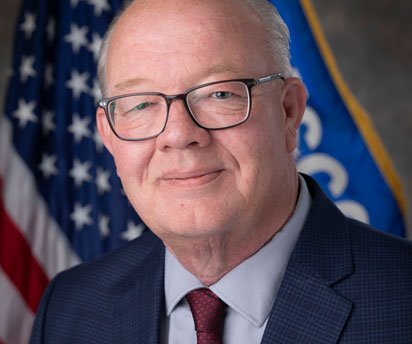Tougher laws to punish drunk driving are long overdue in Wisconsin. Obviously, current laws are not strong enough. If they were, the state would not have the highest number of drunken driving citations in the U.S.
Fortunately, there was a proposal made this week that might actually make people think twice about getting behind the wheel while under the influence of alcohol or drugs.
Unfortunately, it was made in reaction to an alcohol-related tragedy.
Governor Jim Doyle says a third conviction for intoxicated use of a motor vehicle should be a felony, carrying prison time, as a way to protect the public from those who repeatedly drive under the influence.
Doyle made his feelings known Wednesday in reaction to a fatal crash. Mark Benson, a former surgeon, faces three counts of homicide by intoxicated use of a vehicle due to an accident April 25. He was under the influence of pills. Two days before the accident, Benson stood before a Waukesha County judge on a third drunken driving offense.
Benson was sentenced April 23 to 75 days in the county's work release jail, but was given until May 9 to report there, with orders not to drive in the meantime.
Normally, reactive measures to one particular incident are not the best ways to make law. But in this case, the idea is a good one and should be adopted by the Legislature.
Wisconsin law was changed 10 years ago to make a fifth conviction for driving under the influence a felony that carries a prison sentence. Prior to that, all convictions for driving while intoxicated were misdemeanors, unless there was an accident causing death or injury.
Under current law, a first offense is a municipal citation, and second through fourth offenses are criminal misdemeanors that carry time in the county jail.
Driver's licenses are revoked for between six and nine months for a first offense, 12 to 18 months for a second offense and two to three years for a third offense.
Taxpayers need to understand that making third-offense drunken driving a felony may require more resources: more jail and prison cells, more assistant district attorneys, more probation and parole officers and more public defenders.
But that price, if necessary, is worth the benefit of getting more drunk drivers off the road.
Critics of Doyle's idea may cite data that shows 92 percent of drunken drivers in fatal accidents have never been arrested for drunken driving.
That shouldn't stop lawmakers from pursuing tougher legislation. Every time a drunken driver gets behind the wheel, the likelihood of a tragedy increases.
Most states treat drunken driving as a felony after either the third or fourth offense, but no bills have been introduced in the Wisconsin Legislature in the past 10 years to make a third drunken driving conviction a felony, according to the Legislative Reference Bureau.
Wisconsin is a leader in drunken driving citations. It'd be better to be a leader in making life tougher for repeat offenders.
Fortunately, there was a proposal made this week that might actually make people think twice about getting behind the wheel while under the influence of alcohol or drugs.
Unfortunately, it was made in reaction to an alcohol-related tragedy.
Governor Jim Doyle says a third conviction for intoxicated use of a motor vehicle should be a felony, carrying prison time, as a way to protect the public from those who repeatedly drive under the influence.
Doyle made his feelings known Wednesday in reaction to a fatal crash. Mark Benson, a former surgeon, faces three counts of homicide by intoxicated use of a vehicle due to an accident April 25. He was under the influence of pills. Two days before the accident, Benson stood before a Waukesha County judge on a third drunken driving offense.
Benson was sentenced April 23 to 75 days in the county's work release jail, but was given until May 9 to report there, with orders not to drive in the meantime.
Normally, reactive measures to one particular incident are not the best ways to make law. But in this case, the idea is a good one and should be adopted by the Legislature.
Wisconsin law was changed 10 years ago to make a fifth conviction for driving under the influence a felony that carries a prison sentence. Prior to that, all convictions for driving while intoxicated were misdemeanors, unless there was an accident causing death or injury.
Under current law, a first offense is a municipal citation, and second through fourth offenses are criminal misdemeanors that carry time in the county jail.
Driver's licenses are revoked for between six and nine months for a first offense, 12 to 18 months for a second offense and two to three years for a third offense.
Taxpayers need to understand that making third-offense drunken driving a felony may require more resources: more jail and prison cells, more assistant district attorneys, more probation and parole officers and more public defenders.
But that price, if necessary, is worth the benefit of getting more drunk drivers off the road.
Critics of Doyle's idea may cite data that shows 92 percent of drunken drivers in fatal accidents have never been arrested for drunken driving.
That shouldn't stop lawmakers from pursuing tougher legislation. Every time a drunken driver gets behind the wheel, the likelihood of a tragedy increases.
Most states treat drunken driving as a felony after either the third or fourth offense, but no bills have been introduced in the Wisconsin Legislature in the past 10 years to make a third drunken driving conviction a felony, according to the Legislative Reference Bureau.
Wisconsin is a leader in drunken driving citations. It'd be better to be a leader in making life tougher for repeat offenders.





